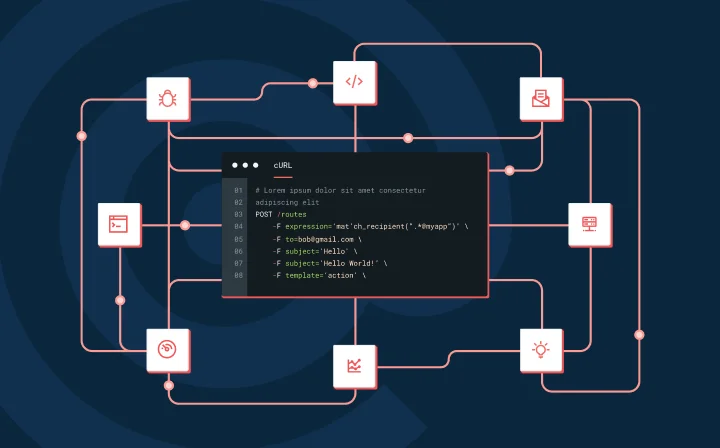IT & Engineering
Stress testing HTTP with Twisted Python and Treq

IT & Engineering

Being in the API business has its challenges and maintaining the robustness of the system during peak hours is one of them. That’s why we do lots of stress testing here at Mailgun.
We have tried many different approaches over time, from simple Apache bench to more complicated custom testing suites. But this post is about a “quick and dirty” yet very flexible stress testing using Python.
When it comes to writing HTTP clients in Python we are fans of the Requests library. This is what we recommend to our API users. Requests is great, but it has one weakness: It’s a blocking one-call-per-thread affair: it’s hard or impossible to generate tens of thousands of requests quickly with it.
To solve this problem we looked at Treq (Github repository). Treq is an HTTP client library inspired by Requests, but it runs on Twisted and it possesses the typical Twisted powers: it is asynchronous and highly concurrent when it comes to network I/O.
Treq is not specific to stress testing at all: it’s a great tool for writing highly concurrent HTTP clients in general, like web crawlers. Treq is elegant, simple to use and powerful. Here’s an example:
>>> from treq import get
>>> def done(response):
... print response.code
... reactor.stop()
>>> get("http://www.github.com").addCallback(done)
>>> from twisted.internet import reactor
>>> reactor.run() 200
Below is a simple script which uses Treq to bombard a single URL with maximum possible number of requests.
#!/usr/bin/env python
from twisted.internet import epollreactor
epollreactor.install()
from twisted.internet import reactor, task
from twisted.web.client import HTTPConnectionPool
import treq
import random
from datetime import datetime
req_generated = 0
req_made = 0
req_done = 0
cooperator = task.Cooperator()
pool = HTTPConnectionPool(reactor)
def counter():
'''This function gets called once a second and prints the progress at one
second intervals.
'''
print("Requests: {} generated; {} made; {} done".format(
req_generated, req_made, req_done))
# reset the counters and reschedule ourselves
req_generated = req_made = req_done = 0
reactor.callLater(1, counter)
def body_received(body):
global req_done
req_done += 1
def request_done(response):
global req_made
deferred = treq.json_content(response)
req_made += 1
deferred.addCallback(body_received)
deferred.addErrback(lambda x: None) # ignore errors
return deferred
def request():
deferred = treq.post('http://api.host/v2/loadtest/messages',
auth=('api', 'api-key'),
data={'from': 'Loadtest <test@example.com>',
'to': 'to@example.org',
'subject': "test"},
pool=pool)
deferred.addCallback(request_done)
return deferred
def requests_generator():
global req_generated
while True:
deferred = request()
req_generated += 1
# do not yield deferred here so cooperator won't pause until
# response is received
yield None
if __name__ == '__main__':
# make cooperator work on spawning requests
cooperator.cooperate(requests_generator())
# run the counter that will be reporting sending speed once a second
reactor.callLater(1, counter)
# run the reactor
reactor.run()
The output:
2013-04-25 09:30 Requests: 327 generated; 153 sent; 153 received
2013-04-25 09:30 Requests: 306 generated; 156 sent; 156 received
2013-04-25 09:30 Requests: 318 generated; 184 sent; 154 received
The “Generated” ones are the requests that have been prepared, but the Twisted reactor has not sent them yet. This script ignores all errors for simplicity, adding the stats for timeouts is left as an exercise for the reader.
The script can be used as a starting point and improved and extended with your own custom application-specific logic. One suggested improvement would be to use collections.Counter instead of the ugly globals. The script runs on a single thread, and to squeeze the maximum number of requests from a machine something like mulitprocessing can be used.
Happy stress testing!
Cheers,
Mailgunners